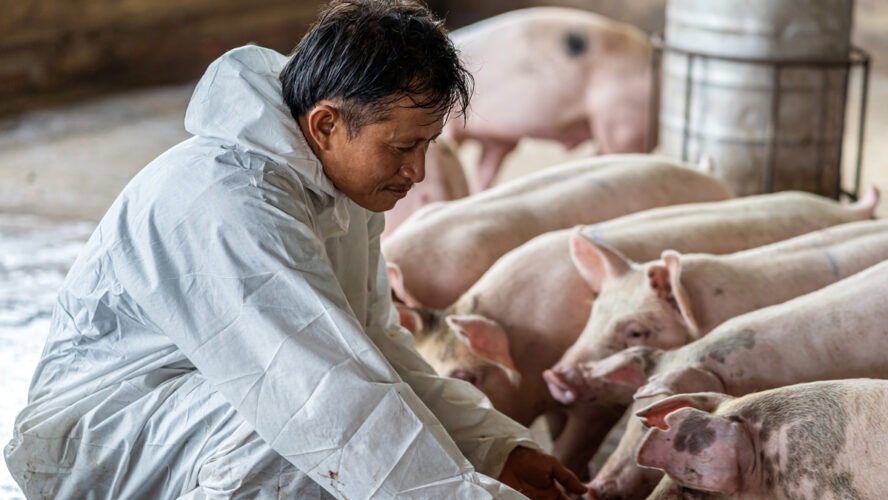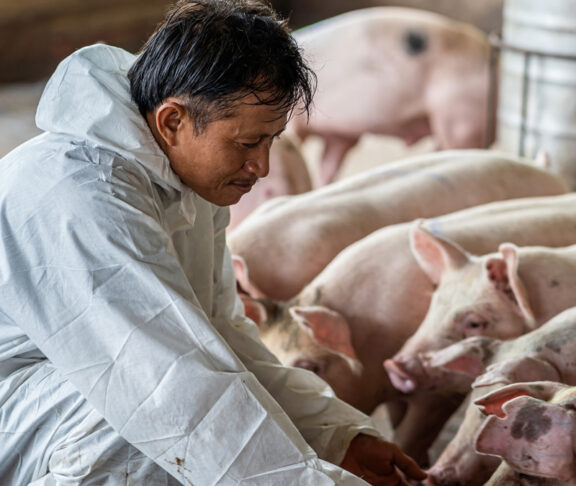
Sujith J Chandy
Executive Director, ICARS
AMR poses a universal challenge across all sectors of One Health. Urgent action is vital to translate evidence into interventions, especially in low and middle-income countries where the burden is most severe.
Patients in low and middle-income countries (LMICs) frequently encounter barriers to essential services, including long wait times, inadequate facilities and shortages of medical personnel and supplies. There are parallel challenges across the entire One Health spectrum, encompassing healthcare, agriculture and the environment. Consequently, public health initiatives struggle to reach their full potential, leaving populations vulnerable to preventable illnesses and impeding socioeconomic development.
Global health disparities exacerbated by AMR
This reality highlights the urgent need for universal health coverage and robust health systems to ensure equitable access to affordable healthcare. Unfortunately, antimicrobial resistance (AMR) compounds this challenge, disproportionately affecting vulnerable populations worldwide, particularly in low-resource settings. Given that many LMICs bear a disproportionate burden of infectious diseases, the importance of infection prevention and control as well as effective antibiotics is paramount.
Why AMR is a critical challenge in LMICs
Despite variations between countries, the burden of AMR is the greatest in LMICs where factors such as inadequate healthcare infrastructure, limited access to quality medicines, poor sanitation and inappropriate use of antibiotics contribute to the rise of AMR, exacerbating the problem and making it particularly challenging to address. Sub-Saharan Africa stands out as a region severely impacted, experiencing the highest death rate linked to drug-resistant infections.
Translating policy and evidence into action
The Global Action Plan to mitigate the emergence and spread of AMR as well as countries’ National Action Plans (NAPs) have laid the groundwork for potential solutions, but translating policy into action remains a hurdle for many countries, especially LMICs.
The International Centre for Antimicrobial Resistance Solutions (ICARS) works to bridge this gap and accelerate efforts to address AMR. We partner with LMICs’ ministries and research institutions to co-develop, test and implement cost-effective, context-specific AMR solutions with potential for scale-up across the One Health spectrum, building on NAPs and informed by intervention and implementation research.
Given that many LMICs bear a disproportionate burden of infectious diseases, the importance of infection prevention and control as well as effective antibiotics is paramount.
Since its inception in 2019, ICARS has partnered with numerous LMICs on over 40 projects across human health, veterinary medicine, and environmental sectors — all aiming to address AMR. We not only provide financial support for these projects but also offer technical expertise and foster a community-oriented approach by strengthening capacity and capability and collaborating with project teams throughout the implementation of the interventions. We generate evidence and translate this evidence into action by actively working in countries with all relevant local, regional, national and international stakeholders.
Mitigating AMR in LMICs: project examples
In Georgia, ICARS has successfully implemented AMR stewardship programmes in hospitals, improving compliance. In Colombia, efforts to subsidise private diagnostic services in pig farming and understand the operational challenges for testing now have the potential to influence cost-effective national policies.
In Kyrgyzstan, our tested intervention has achieved a significant decrease in unnecessary antibiotic prescriptions in children with respiratory tract infections, with evidence of behavioural change among caregivers and healthcare professionals.
Progress in communities across Africa
In Africa, we have collaborated extensively across sectors and with diverse partners. A project in Ghana targets AMR genes and bacteria in wastewater to control AMR transmission between settings while another project in Tanzania focuses on mitigating the spread of antimicrobials and resistant microbes through treatment of manure.
Teaming up with ReAct Africa, we are developing contextualised tools for implementation research to support NAPs across the continent. Likewise, in partnership with Wellcome, we are facilitating community engagement for better intervention development and implementation by testing Responsive Dialogue guidelines on drug-resistant infections.
We envisage that in the upcoming years, ICARS will strengthen its regional impact in Africa through an enhanced collaboration with Wellcome. This endeavour aims to support African countries in implementing their NAPs to optimise antimicrobial usage (AMU) and mitigate AMR.
How collaboration for One Health can address AMR
Recognising the multidimensional nature of AMR, collaborative efforts between the Global North and South are crucial. Through partnerships spanning public and private sectors, a unified approach grounded in the principles of One Health is essential.
We hope that this discourse will be a catalyst for further engagement and collective action, striving towards the preservation of antimicrobial effectiveness for future generations.



